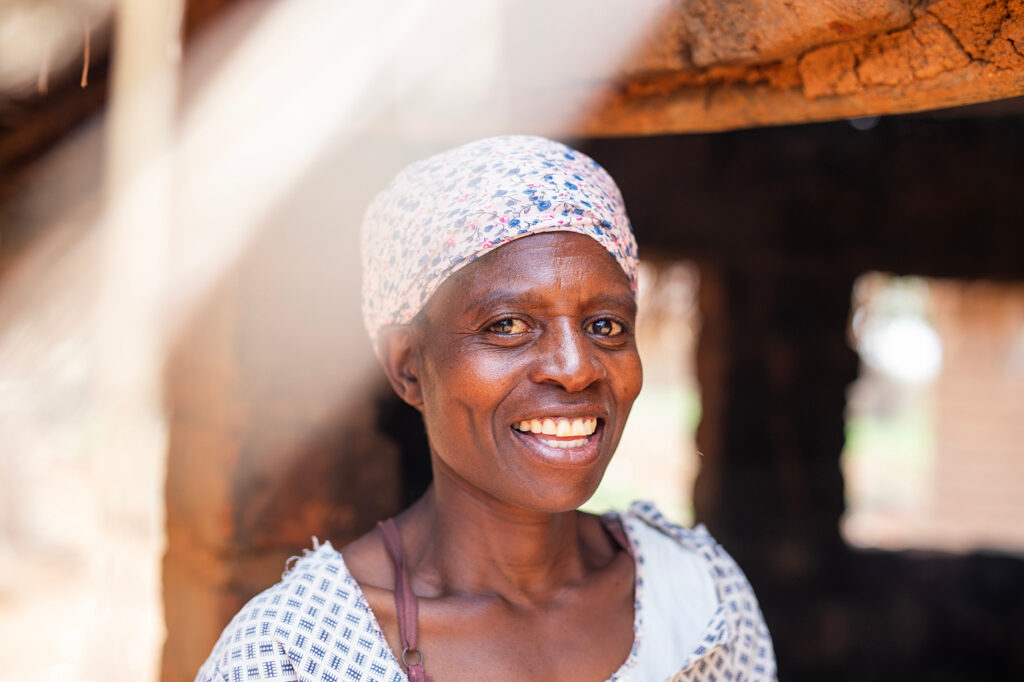An Innovation That Changes Lives and Saves Malawi’s Forests

In the villages of Malawi, firewood is scarce, and women are forced to walk long and often unsafe distances to collect fuel for their stoves. But a simple innovation is transforming lives. With the energy-efficient Changu Mbaula stove, Felisitar Limited no longer has to spend hours searching for firewood. The stove requires only small branches, heats up quickly, and reduces deforestation—an essential step in a country where forest loss threatens both ecosystems and agriculture.
Smoke rises slowly under the roof of the round, brick-built kitchen. Outside, a few children pass by on their way to school. Inside, Felisitar Limited crouches on the floor, stirring a pot of nsima, the traditional maize porridge that forms the basis of most meals in rural Malawi. The built-in stove she is using may not look like much, but it has revolutionised her life in just a few months.
“I used to wake up at dawn and walk for an hour and a half every morning to collect firewood in the forest. My old stove required large logs that I could only find far away. It often felt unsafe to walk such long distances so early in the morning because I had heard of other women being attacked by men on the way,” Felisitar explains.

The ability to avoid these unsafe journeys is just one of the many benefits of the Changu Mbaula—’the fast stove’—a green transition project supported by IM through its local partner, the Concerned Youth Organization (CYO). The stove, made from bricks formed from termite mound soil, is an innovation that is transforming the lives of rural women while also helping to save Malawi’s forests. Unlike traditional stoves, it does not require large logs; instead, small twigs and branches collected nearby are sufficient. It also heats up faster and retains heat much longer than conventional stoves.
Deforestation—A Silent Disaster in Malawi
Malawi is one of the fastest deforesting countries in the world. Over 90 per cent of the population relies on firewood or charcoal for cooking, and the enormous demand fuels deforestation at an alarming rate, threatening both ecosystems and the climate. The soil degrades, erosion increases, and farming becomes more difficult every year. When the trees disappear, so does the future for many small-scale farmers.
Changu Mbaula is part of the solution. By significantly reducing the need for firewood, the stove can slow down deforestation and give forests a chance to recover. Every stove built means fewer trees cut down—and a more sustainable future.

Knowledge That Spreads
The stove Felisitar uses was built by her adult daughter, Esther, who at the time of the interview was at the hospital with her child who was suffering from a high fever. Esther received training through CYO, where she learned how to build and use a Changu Mbaula stove. The training takes just one day, with participants receiving transport and lunch. Each trainee is then expected to share their knowledge with at least 20 other people, creating a ripple effect of positive change. Esther has already helped 35 women in the village build their own stoves.

Because the stove heats up quickly and retains warmth longer, cooking has become easier. Felisitar steps inside the house and returns with a handful of beans to illustrate her point.
“These are Buffalo Beans,” she says, holding up the blue-black legumes in her hands. “They need to be boiled several times before they can be eaten. It used to take nine hours, but now it’s much faster.”

The village head, 88-year-old Yolamu Chifenthe, stops by to greet Felisitar. When asked what he thinks about Changu Mbaula, he replies:
“These stoves have made a big difference in the village. We now use much less firewood, which is good for the surrounding forests. They finally have a chance to recover. Plus, women no longer have to spend as much time searching for fuel.”

Be Part of the Change
IM is working to ensure that more women in Malawi gain access to energy-efficient stoves. Each stove means less firewood is needed, lives are made safer, and forests get a chance to recover.
Would you like to contribute? A donation of just 100 kronor is enough to train a woman and equip her with the knowledge to pass it on. A simple action—but one with a huge impact on both people and the environment. Make international donation or become a monthly donor.
Thank you for your support!

By: Malin Kihlström